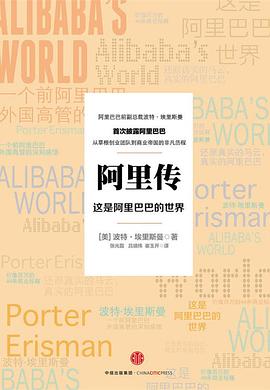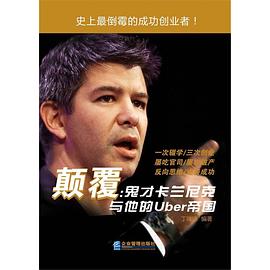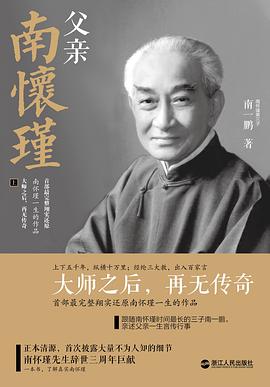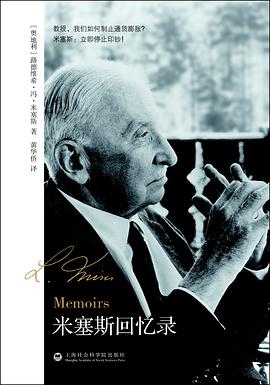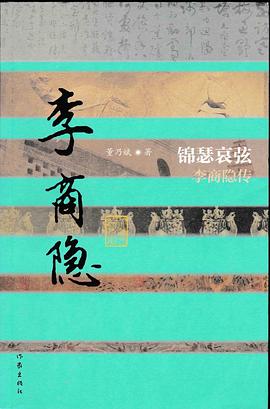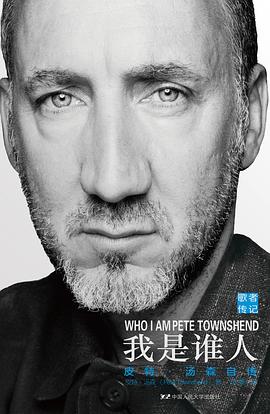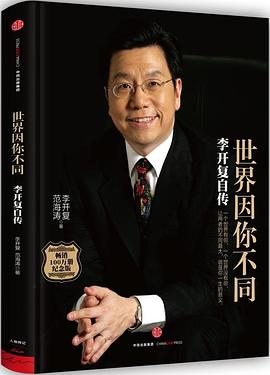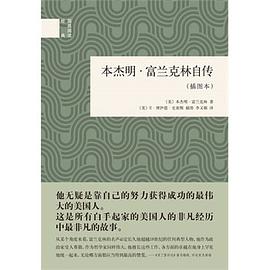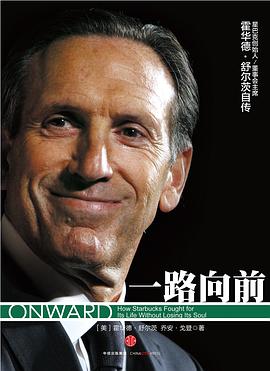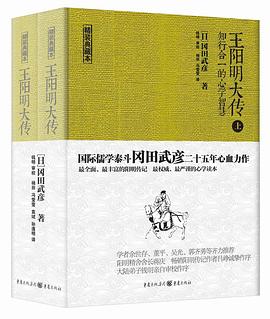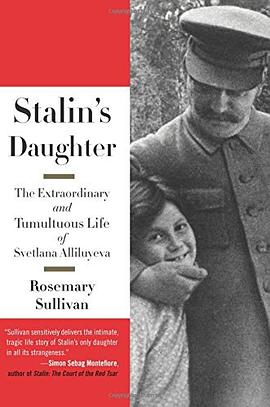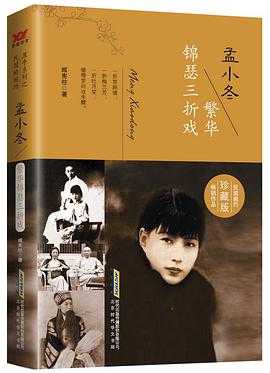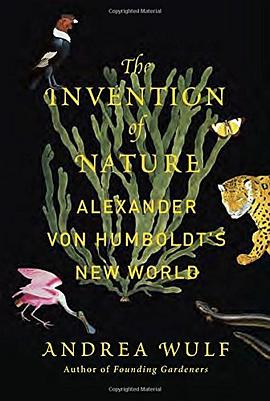

具体描述
The acclaimed author of Founding Gardeners reveals the forgotten life of Alexander von Humboldt, the visionary German naturalist whose ideas changed the way we see the natural world—and in the process created modern environmentalism.
Alexander von Humboldt (1769–1859) was an intrepid explorer and the most famous scientist of his age. In North America, his name still graces four counties, thirteen towns, a river, parks, bays, lakes, and mountains. His restless life was packed with adventure and discovery, whether he was climbing the highest volcanoes in the world or racing through anthrax-infected Siberia or translating his research into bestselling publications that changed science and thinking. Among Humboldt’s most revolutionary ideas was a radical vision of nature, that it is a complex and interconnected global force that does not exist for the use of humankind alone.
Now Andrea Wulf brings the man and his achievements back into focus: his daring expeditions and investigation of wild environments around the world and his discoveries of similarities between climate and vegetation zones on different continents. She also discusses his prediction of human-induced climate change, his remarkable ability to fashion poetic narrative out of scientific observation, and his relationships with iconic figures such as Simón Bolívar and Thomas Jefferson. Wulf examines how Humboldt’s writings inspired other naturalists and poets such as Darwin, Wordsworth, and Goethe, and she makes the compelling case that it was Humboldt’s influence that led John Muir to his ideas of natural preservation and that shaped Thoreau’s Walden.
With this brilliantly researched and compellingly written book, Andrea Wulf shows the myriad fundamental ways in which Humboldt created our understanding of the natural world, and she champions a renewed interest in this vital and lost player in environmental history and science.
作者简介
ANDREA WULF was born in India and moved to Germany as a child. She lives in London, where she trained as a design historian at the Royal College of Art. She is the author of Chasing Venus, Founding Gardeners, and The Brother Gardeners, which was long-listed for the Samuel Johnson Prize and awarded the American Horticultural Society Book Award. She has written for The New York Times, the Financial Times, The Wall Street Journal, and the Los Angeles Times. She appears regularly on radio and TV, and in 2014 copresented British Gardens in Time, a four-part series on BBC television.
www.andreawulf.com
目录信息
读后感
文/宝木笑 “那么多种声音都在告诉我们,自然中的一切都在呼吸。” ——亚历山大•冯•洪堡 上面的话是刚过而立之年的亚历山大•冯•洪堡在南美洲的雨林中写下的,那段时间他和他的伙伴险象环生,睡觉时会有蛇盘踞在垫子下面,也许还有美洲豹毛茸茸的利爪慢慢伸来,搜...
评分这本书买了一年之久,终于在疫情之间断断续续的读完了。合上书想的最多的就是人与自然的关系,像一个闭合的圆,起点终点连在一起,因果相关,我们影响自然的同时也被自然影响着。 洪堡的一生都在追求在自然中探索真理,发现自然的美,保护自然。也许每个时代都是如此,通过认真...
评分1 1831年12 月27日, 22岁的查尔斯·达尔文乘坐“小猎犬”号帆船从英国朴茨茅斯港出发,开始了环球航行。他随身的行李中有一套洪堡记述南美洲探险的七卷本《旅行故事》。 达尔文后来说,“出于对这部著名游记的仰慕之情,我决定去游历那些遥远的国度,并最终志愿登上女王陛下的...
评分 评分用户评价
**评价二:** 《自然的创造》这本书,简直是一场关于思想与探索的盛宴,让我沉浸其中,久久不能自拔。作者巧妙地将科学发现、哲学思辨以及那些不为人知的个人故事融为一体,构建了一个引人入胜的叙事。我尤其被书中那些关于“个体”如何在历史的长河中,以一己之力挑战既有认知,并最终开启全新篇章的描绘所打动。这些人物,他们不再是教科书上冰冷的名字,而是有血有肉、有喜有悲的探索者。我能感受到他们面对未知时的忐忑,也能体会到他们洞悉真理时的狂喜。书中所探讨的“创造”并非指凭空捏造,而是一种深刻的重塑,是对自然界固有秩序的全新解读,是对人类理解边界的无限拓展。每一次的“创造”,都伴随着巨大的风险和牺牲,但正是这些不懈的努力,才让我们得以瞥见自然的真实面貌。阅读这本书,不仅仅是在获取知识,更是在体验一种精神,一种敢于质疑、勇于探索、永不止步的求索精神。它让我意识到,我们所拥有的关于自然的知识,其实是无数先辈们用智慧、勇气甚至生命换来的宝贵遗产。这本书以一种令人敬畏的方式,展现了人类思想的创造力是如何塑造了我们对整个世界的认知。
评分**评价六:** 翻开《自然的创造》,我便被卷入一场思想的漩涡。作者以一种非凡的视角,将人类对自然界认识的演进,描绘成了一部波澜壮阔的“创造史”。我惊叹于书中那些关于“创造”的论述,它们并非简单的技术革新,而是对宇宙规律的全新解读,是对人类认知边界的无限拓展。我能感受到,那些伟大的科学家和哲学家们,他们如同艺术家般,用逻辑和想象力,为我们“创造”了理解自然的全新图景。书中所展现的,是一种跨越时空的对话,是将不同时代、不同思想的火花汇聚在一起,最终点亮了人类的认知之路。我尤其被书中那些关于“颠覆性创新”的描绘所打动,它们往往源于对传统观念的挑战,源于那些敢于质疑、勇于探索的个体。阅读此书,让我深刻体会到,我们对自然的理解,并非一成不变,而是在不断地被“创造”和“重塑”。它是一本能够激发读者思考“知识的本质”以及“思想的力量”的绝佳读物,让我对科学史以及人类智慧的发展有了更深层次的认识。
评分**评价八:** 我发现,《自然的创造》这本书,不仅仅是一部科学史,更是一部思想史,它深刻地揭示了人类是如何在与自然的互动中,不断地“创造”出对它的认识。作者以一种诗意而又不失严谨的笔触,将那些伟大的发现和理论,置于广阔的历史和社会背景之中。我被书中对于“创造”的深入探讨所吸引。它并非仅仅指发明工具或提出理论,而是一种对自然界深层运作机制的深刻洞察,一种对人类认识框架的彻底革新。我能感受到,那些伟大的思想家们,他们如同哲人般,用逻辑和想象力,为我们“创造”了理解世界的全新视角。书中所展现的,是一种思想的碰撞与融合,是将不同时代的智慧火花汇聚在一起,最终点亮了人类的认知之路。我尤其欣赏作者对那些“边缘化”思想的关注,它们在后来,往往成为了推动革命性“创造”的火种。阅读此书,让我对“知识”的本质有了更深刻的理解,它并非静止不变,而是在不断地被“创造”和“演进”。
评分**评价七:** 《自然的创造》这本书,宛如一位博学的智者,用一种令人着迷的方式,引领我穿越历史的长河,去探寻人类是如何一步步“创造”出我们今天所熟知的自然科学体系的。作者的叙事结构非常独特,他并非按照时间顺序简单罗列,而是将那些看似孤立的思想和发现,巧妙地编织在一起,揭示出它们之间深层的内在联系。我最为震撼的是,书中对于“创造”这个概念的解读。它不仅仅是指发现已有的规律,更是指通过新的理论框架和思维方式,对自然界进行一种全新的“构建”。我能感受到,那些伟大的思想家们,他们如同建筑师一般,用智慧和勇气,为我们“创造”了理解世界的蓝图。书中所展现的,是一种思想的传承与革新,是将不同时代的智慧火花汇聚在一起,最终点亮了人类的认知之路。我尤其欣赏作者对那些“非主流”思想的关注,它们在后来,往往成为了推动革命性“创造”的关键。阅读此书,让我对“知识”的来源有了更深刻的理解,它并非凭空产生,而是无数先辈们用智慧、汗水甚至牺牲所“创造”出来的宝贵财富。
评分**评价九:** 《自然的创造》这本书,对我来说,是一次意义非凡的思想旅行。作者以其独到的视角,将人类对自然界认识的历程,描绘成了一场持续不断的“创造”之旅。我惊叹于书中对于“创造”这个词汇的深刻解读。它并非仅仅指科学的发现,而是一种对自然界深层规律的洞察,一种对人类认知框架的革新。我能感受到,那些伟大的思想家们,他们如同雕塑家般,用智慧和毅力,为我们“创造”了理解世界的独特形态。书中所展现的,是一种思想的积累与升华,是将不同时代的智慧火花汇聚在一起,最终点亮了人类的认知之路。我尤其欣赏作者对那些“非传统”思想的关注,它们在后来,往往成为了推动革命性“创造”的萌芽。阅读此书,让我对“科学”的定义有了更广阔的理解,它并非仅仅是事实的集合,而是人类不断探索、不断“创造”出对世界认识的过程。
评分**评价一:** 翻开《自然的创造》,我仿佛置身于一个被精心编织的知识迷宫,每一个章节都如同一个等待被探索的奇境。作者以一种近乎史诗般的笔触,勾勒出人类对自然界认知演变的壮丽画卷。我被深深吸引的不仅是那些科学发现的脉络,更是那些伟大思想家们在寂静的夜晚,面对浩瀚星空,或是深入幽暗森林时,内心涌动的灵感与困惑。他们不仅仅是在观察,更是在“创造”——创造理解自然的新范式,创造全新的世界观。阅读的过程中,我反复停下来,想象那些在简陋实验室里,在风雨飘摇的旅途中,他们如何凭借着非凡的毅力和敏锐的洞察力,一点点揭开自然的神秘面纱。这本书并非简单的科学史梳理,它更像是一次对人类求知欲最深沉的致敬,一次对思想火花碰撞最生动的描绘。它让我开始重新审视我们与自然的关系,理解那些曾经被我们视为理所当然的科学概念,背后蕴含着多么巨大的努力和多么深邃的哲学思考。我感受到,我们对自然的理解,从来都不是一蹴而就的,而是一个漫长、曲折、充满牺牲与辉煌的创造过程。这本书的力量在于,它不仅提供了知识,更启迪了思考,让我以一种全新的视角去感受和理解这个我们赖以生存的世界。
评分**评价三:** 《自然的创造》这本书,像是一本打开了古老地图的探险日志,每一页都充满了未知与惊喜。我发现,作者并非线性地讲述科学史,而是以一种更为细腻和宏观的视角,将不同时期、不同领域、甚至不同文化背景下的思想火花巧妙地串联起来。我所惊叹的是,那些看似分散的科学理论和哲学观点,在作者的笔下,竟然可以如此有机地融合,揭示出人类对自然界认识的深层联系和内在逻辑。书中那些关于“创造”的讨论,触及了我内心最深处的震撼。它让我理解到,科学的进步不仅仅是实验的堆砌,更是思维方式的革命,是观念的重塑。那些伟大的科学家们,他们不仅发现了自然界的规律,更创造了理解这些规律的全新语言和框架。阅读此书,我仿佛经历了一次思想的洗礼,重新认识了“创造”的意义——它是一种挑战、一种整合、一种升华。这本书的价值在于,它让我们看到了人类智慧的连续性,以及这种智慧是如何在一代代人的传承与革新中,不断“创造”出我们今天所熟知的自然科学体系。它是一本让我思考“我们是如何知道我们所知道的”的绝佳读物。
评分**评价十:** 我必须说,《自然的创造》这本书,是一部令人震撼的杰作。作者以一种近乎史诗般的笔触,勾勒出人类对自然界认知演变的壮丽画卷,而“创造”一词,贯穿了整本书的脉络。我被书中那些关于“创造”的论述深深吸引。它并非简单的科学发现,而是一种对自然界深层运作机制的深刻洞察,一种对人类认知框架的革新。我能感受到,那些伟大的思想家们,他们如同画家般,用逻辑和想象力,为我们“创造”了理解世界的全新色彩。书中所展现的,是一种思想的传承与突破,是将不同时代的智慧火花汇聚在一起,最终点亮了人类的认知之路。我尤其欣赏作者对那些“曾经被遗忘”的思想的挖掘,它们在后来,往往成为了推动革命性“创造”的基石。阅读此书,让我对“知识”的由来有了全新的认知,它并非凭空出现,而是无数先辈们用智慧、勇气和不懈努力所“创造”出来的宝贵财富。
评分**评价四:** 我常常在想,我们今天所信奉的关于自然的诸多“真理”,究竟是如何一步步形成的?《自然的创造》这本书,就如同一把钥匙,为我打开了这扇尘封已久的门。作者的叙述风格是如此的引人入胜,他将那些宏大的科学理论,与那些发生在幕后的,充满人性光辉的故事紧密相连。我不再觉得那些科学概念是枯燥乏味的公式,而是充满了人类智慧的结晶,是那些伟大思想家们在不断探索、试错、以及最终“创造”出来的成果。我印象最深刻的是,书中对于那些“非主流”思想的关注,那些曾经被质疑、被边缘化的观点,是如何在后来的时间里,逐渐被证明是开创性的。这让我深刻体会到,“创造”的过程,往往伴随着孤独与质疑,但正是这种坚持,才最终推动了人类认识的边界。这本书让我意识到,我们对自然的理解,并非一成不变,而是在不断地被“创造”和“重塑”。它是一本能够激发读者思考“何谓真理”、“何谓创新”的深刻作品,让我对科学史以及人类智慧的发展有了全新的认识。
评分**评价五:** 《自然的创造》这本书,像是一幅宏大的星图,勾勒出人类思想从蒙昧走向启蒙的轨迹。作者以其深厚的学养和卓越的叙事技巧,将科学、哲学、历史融为一体,呈现出一幅波澜壮阔的画卷。我被书中那些关于“创造”的论述深深吸引。它并非指简单的发明或发现,而是一种对自然界深层规律的洞察,一种对人类认知框架的革新。我能感受到,那些伟大的思想家们,他们在黑暗中摸索,在迷雾中前行,最终以非凡的洞察力,“创造”出了我们今天所理解的自然。书中所展现的,是一种跨越时空的对话,是将无数智慧的火花汇聚成一束耀眼的光芒。我尤其欣赏作者对那些被历史洪流所淹没的边缘思想的关注,它们在后来,往往成为了推动革命性“创造”的关键。阅读此书,让我对“知识”的来源有了更深刻的理解,它并非凭空产生,而是无数先辈们用智慧、汗水甚至牺牲所“创造”出来的宝贵财富。这本书是一次关于思想如何塑造世界观的精彩解读,它让我以一种全新的视角去审视我们所处的这个科学时代。
评分洪堡是西方近现代最后一位通才,兴趣广泛笔耕不辍,他的热血都献给了冒险和研究。作者聪明之处在于行文贯彻了主人公所信奉的整体论和万物互联的观点,所以这本书不仅仅回顾了这位德国博学家的传奇一生(在正文三分之二的地方洪堡就死了),还穿插着他对前辈(歌德)、同辈人(例如玻利瓦尔)和后来者(例如达尔文、梭罗、约翰·缪尔)的深远影响。作者对于洪堡的性取向处理相对模糊,但从给出的信息来分析,应该是柏拉图式的同性恋者或是精神偏好男性的无性恋者。
评分Such a great theme and character, too bad that the author didn't do the best job. First, this book literally make Humbolt the perfect person, it barely talks about his weaknesses, emotions, and is just full of praise and how big a difference he makes. That doesn't make him a full character, a true human. Second, the author jumped quickly from diff
评分洪堡是西方近现代最后一位通才,兴趣广泛笔耕不辍,他的热血都献给了冒险和研究。作者聪明之处在于行文贯彻了主人公所信奉的整体论和万物互联的观点,所以这本书不仅仅回顾了这位德国博学家的传奇一生(在正文三分之二的地方洪堡就死了),还穿插着他对前辈(歌德)、同辈人(例如玻利瓦尔)和后来者(例如达尔文、梭罗、约翰·缪尔)的深远影响。作者对于洪堡的性取向处理相对模糊,但从给出的信息来分析,应该是柏拉图式的同性恋者或是精神偏好男性的无性恋者。
评分年轻的洪堡痴迷于animal electricity的研究,用手术刀在自己的手臂和大腿上割开,撒上各种化学试剂接上电极,仔细记录下电流通过时感官体验的区别…… 和用电击shock的程度比较电流的大小的卡文迪许有的一拼。传说中的科学狂人都是历史上真实存在的啊!
评分4.5.
相关图书
本站所有内容均为互联网搜索引擎提供的公开搜索信息,本站不存储任何数据与内容,任何内容与数据均与本站无关,如有需要请联系相关搜索引擎包括但不限于百度,google,bing,sogou 等
© 2026 book.quotespace.org All Rights Reserved. 小美书屋 版权所有

